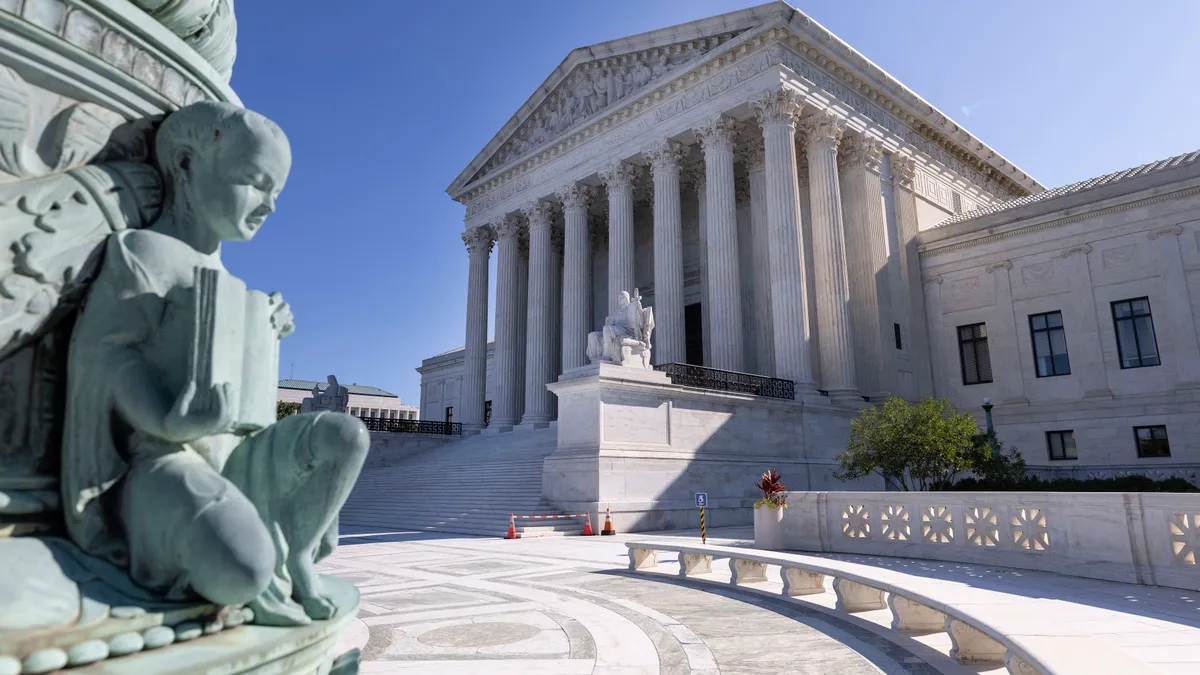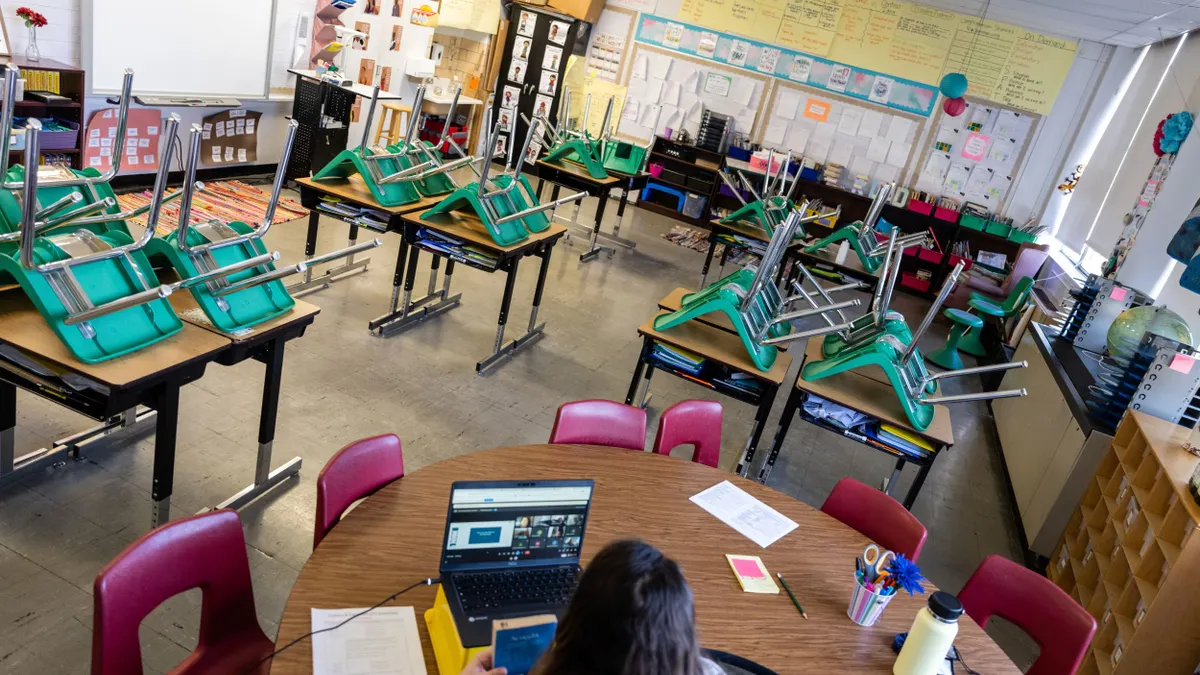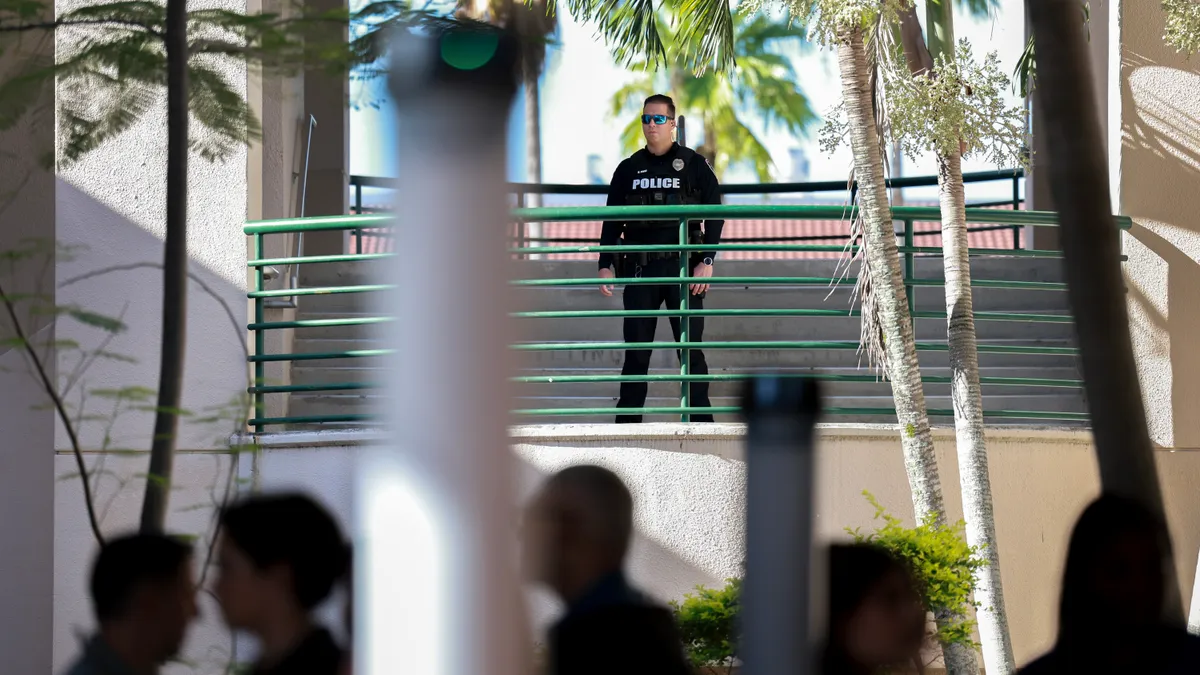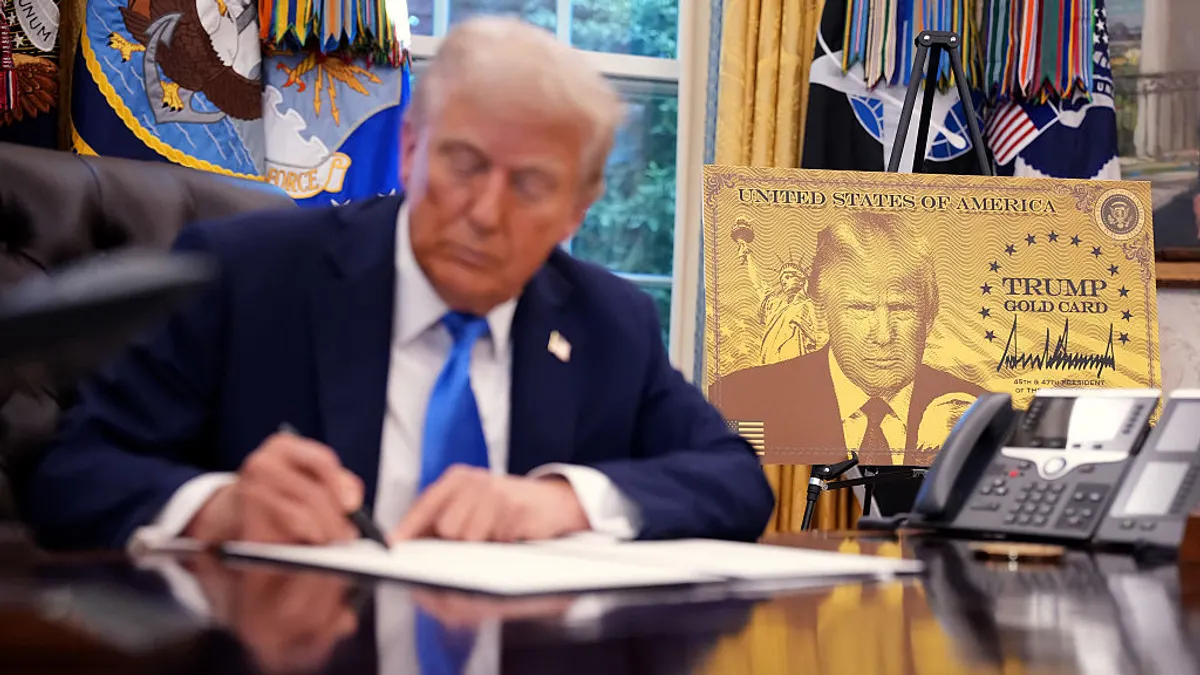UPDATE: Feb. 27, 2023: Oklahoma Attorney General Gentner Drummond, who took former Attorney General John O'Connor's place, walked back his predecessor's opinion on Thursday. In a letter to the Statewide Virtual Charter School Board, Drummond stated the opinion, which greenlit religious charter schools, “misuses the concept of religious liberty by employing it as a means to justify state-funded religion.”
"If allowed to remain in force, I fear the Opinion will be used as a basis for taxpayer-funded religious schools," he wrote.
______________
An opinion allowing religious charter schools to be established in Oklahoma, issued by state Attorney General John O'Connor, is one of the first to reveal what the road forward for such measures may look like since the U.S. Supreme Court in June left open the possibility.
The opinion was issued after the Archdiocese of Oklahoma City announced its intent to launch a virtual Archdiocesan charter school in a letter to the Oklahoma Statewide Virtual Charter School Board.
"The more complex question here is whether a religiously affiliated applicant must be allowed to establish and operate a charter school in conformance with that applicant’s 'sectarian' or 'religious' traditions," O'Connor wrote. To that question, he answered: Yes.
Oklahoma law currently prohibits a charter school — often funded with public dollars — from affiliating with a nonpublic sectarian school or religious institution and requires charters to have nonsectarian operations, including programs, admission policies, and employment practices.
However, O'Connor wrote that these requirements constitute religious discrimination and, if enforced, would be unconstitutional due to recent Supreme Court decisions.
"The State cannot enlist private organizations to 'promote a diversity of educational choices' … and then decide that any and every kind of religion is the wrong kind of diversity," he said. "This is not how the First Amendment works."
The fallout begins
The opinion follows in the footsteps of the Supreme Court's landmark cases Carson v. Makin and Espinoza v. Montana Department of Revenue, which allowed private institutions to have access to public funding regardless of their religious status or use. It was not unexpected for education and law experts following the issue.
"I wasn't surprised. Many of us saw this coming," said Preston Green, professor of educational leadership and law at the University of Connecticut. "You could see how the court was gradually setting this possibility up."
Together, the Carson and Espinoza cases left open the door for the public funding of religious charter schools, including those with religious instruction. In June, when the Carson decision was announced, 45 states and the District of Columbia had charter school-authorizing laws that could be impacted.
The Oklahoma attorney general's opinion in light of these cases concludes "that the current SCOTUS majority has drastically tipped the balance away from ‘separation of church and state’ concerns and toward ensuring that churches are not excluded from publicly funded programs," said Kevin Welner, director of the National Education Policy Center and professor of education policy and law the the University of Colorado Boulder's School of Education, in an email.
Impact on faith-based school operations
O'Connor warns in his opinion that while prohibiting religious charter schools is unconstitutional, that does not mean they "can necessarily operate however they want" when it comes to programs, admission policies, employment practices and other operations. Religious, LGBTQ and racial discrimination in religious schools have all concerned public education advocates.
O'Connor said the religious charters should be “as equally free and open to all students as traditional public schools."
However, the opinion stops short of detailing what this means in practice.
"Can Oklahoma charter school laws continue to require the teaching of a public school curriculum?" Welner said. "Can it stop teachings that condemn religious beliefs that are contrary to that church’s teachings or that are racist, homophobic, or otherwise in conflict with state standards?"
What's next for publicly funded religious schools?
The O'Connor opinion will likely not be the last.
Welner and Green both expect other states — especially states with pro-voucher leaders — to adopt similar policies. And even states that don't favor religious charter school policies like New York and California may be cornered in complying, according to Green.
"These decisions can have major implications for them, because you're going to see religious churches and other entities saying that they want to run charter schools, and they want to run religious charter schools," Green said.
The education law and policy experts also expect another round of litigation brought on, at least in part, by these interpretations. That could potentially decide whether charter schools are considered public or private entities, with implications for civil rights and protections of students and employees in those schools.
"These issues will surely be litigated," said Welner. "Starting in the federal district courts and working their way up to the Federal Circuit Courts of Appeals and perhaps to the Supreme Court."






 Dive Awards
Dive Awards















